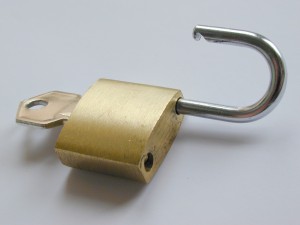 Never had therapy? No idea of what to expect when you come for the first time to a therapist? Wondering what to “do”? All of these questions can naturally bring anxiety and tension for us and there’s no doubt that many are put off getting the help they need because they see counselling for “weak” people who should be able to sort their own problems out. Lets turn that around though. If we understand that many of us find the thought of going to a therapist for the first time daunting, then we can acknowledge that it takes bravery to step up to the plate and make that first appointment. It’s the first step down the road to positive change.
Never had therapy? No idea of what to expect when you come for the first time to a therapist? Wondering what to “do”? All of these questions can naturally bring anxiety and tension for us and there’s no doubt that many are put off getting the help they need because they see counselling for “weak” people who should be able to sort their own problems out. Lets turn that around though. If we understand that many of us find the thought of going to a therapist for the first time daunting, then we can acknowledge that it takes bravery to step up to the plate and make that first appointment. It’s the first step down the road to positive change.
Any therapist worth their salt will recognise that you feel scared and unsure in your first session and will be supportive and reassuring. Once the initial session is over and you meet your therapist for the first time those stresses will ease and the fear factor will melt away.
In my first sessions working with individual clients and couples I spend time getting to know what has brought you into therapy and what you want the outcome to be. It’s also an opportunity for you to get a look at me and ask me any questions you have about the process, who I am, my method of working and decide whether you think I’m the right therapist for you. It gives me an opportunity to decide whether I can help you or if it would be more appropriate to refer you to another therapist who could meet your needs more effectively.
So what are you as a client supposed to do when in therapy? Well the most important thing to do is be as open and as honest as you feel safe to be. I’m not suggesting that you go into your first session and pour out your deepest thoughts and feelings, in fact I would advise strongly against doing that until you have tested the relationship with your therapist for a few weeks and you feel ready to expose yourself a little more. Pace yourself, get used to the process and relax.
Many would argue that the type of therapy you have is unimportant. They are all just different ways of reaching the same goal. The relationship you have with your therapist is the key. Building trust and learning intimacy in a unique safe setting can be a truly liberating experience. The relationship you have with your therapist gives you the space and opportunity to test out a different way of relating to people in a safe environment.
Before you know it, you will be “doing” therapy without giving it a second thought. Hopefully this will be a life changing experience.
 You will notice that on my site I mix up the terms “counselling” and “therapy”. Is there a difference? For all intents and purposes there are no differences when I use these terms and I think that is pretty common across my peers too. Counsellors and therapists do have different qualifications and have gone through different processes to get “certified” but that should not necessarily make any difference to potential clients. Research has shown that all of
You will notice that on my site I mix up the terms “counselling” and “therapy”. Is there a difference? For all intents and purposes there are no differences when I use these terms and I think that is pretty common across my peers too. Counsellors and therapists do have different qualifications and have gone through different processes to get “certified” but that should not necessarily make any difference to potential clients. Research has shown that all of  In the last post, I outlined some ideas about why some of people suffer from anger issues (if you missed it,
In the last post, I outlined some ideas about why some of people suffer from anger issues (if you missed it,